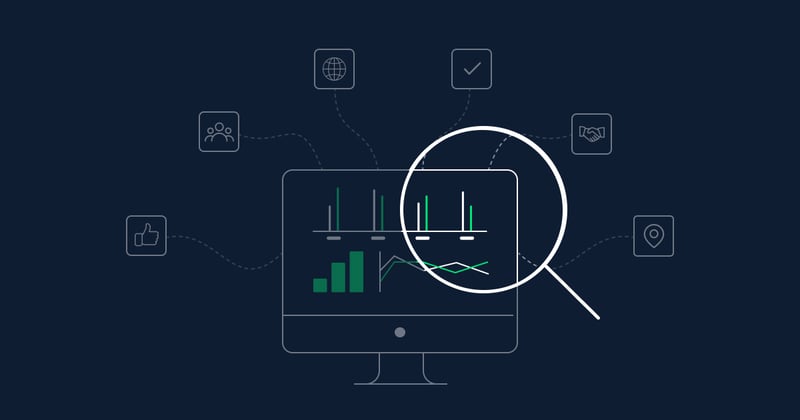Consumers are acutely aware of their needs. Therefore, if you do not relate to them, your marketing message can come off as generic noise. Statistics indicate that personalisation is changing the game for many B2B marketers. For instance, customised email marketing yields a median ROI of 122%. Unfortunately, 70% of businesses still ignore personalisation or do not utilise it correctly. Leveraging personalised marketing for B2B requires an in-depth understanding of what it is and how to use it in your marketing.
Personalised Marketing Defined
Traditional marketing efforts were one-size-fits-all techniques that focused on the quantity instead of relevance. With time, consumers became fed up with the generic messages and started tuning out the adverts and emails. Businesses only wanted to make money and did not care about solving consumers’ problems. In a bid to gain customers’ attention, companies realized the importance of adopting personalised marketing.
Marketing personalisation is leveraging information about the target audience to create customised marketing experience and relate to their needs. It is more than using the prospect’s name in an email. Personalised marketing needs to be functional and relevant to influence a buyer’s decision-making process. You can utilise one-to-one marketing in various mediums from websites, emails, and social media to get the desired results. Personalised marketing is a key feature of account-based marketing, ABM needs to be personalised in order to be successful. It also helps massively with marketing automation, which can save time and resources.
On the surface, personalised marketing seems impossible to achieve. How can you communicate with each prospect individually? That is where data comes to your rescue.
How To Collect Data to Help Personalisation
One-to-one marketing is only possible if you understand the consumer well. To acquaint yourself with your audience's needs, you need to collect data and analyse it. How do you collect information for your marketing campaign?
Online Forms
Encourage your website visitors to fill out the forms by offering incentives. It could be a product or information on some topics.
Surveys
Surveys provide insights on customers’ likes and preferences. If you know the right questions to ask, you can get enough data to build the customers profiles.
Competitions & Campaigns
Run a contest on your website or social media pages and encourage guests to share. You can use prizes and exclusive offers to invite more visitors. As people share the competition, you can generate a lot of data.
Social Media Engagement
Encourage your followers on social media to visit your website for additional information or signup to your email list. You can also encourage subscribers to verify and update their email signup data.
Apart from sourcing information from your audience, you can also use Google Analytics to study your website’s information. You should also avoid requesting too much information from your visitors. You do not want to come off as creepy and scare them. Therefore, you need to use different touchpoints to build their profiles without burdening them.
We recommend using a CRM platform to organise and manage information about your contacts. At GrabSome, HubSpot is our CRM platform of choice. We are proud to be one of the few HubSpot partners in Ireland because HubSpot allows us to build integrated marketing, sales, and service solutions for our clients.
5 Reasons To Use Personalised Marketing
Marketing personalisation has numerous benefits for a company. From increased ROI to better engagement, one-to-one marketing is beneficial to all the parties involved. Here are the benefits of personalisation:
1. Targeting
With one-to-one marketing, you can effectively target individuals using the data collected and tailoring the outreach to suit their needs. By gathering user information, you can leverage their purchasing habits to create customised email campaigns. Apart from preferences and shopping habits, you can use demographics to target a specific audience. Targeting not only increases conversions but also improves customer engagement.
2. Brand Loyalty
There is a high level of competition in online businesses. Therefore, you need to hold on to every customer that comes your way. Personalisation can help you to achieve loyalty without breaking a sweat. When you create tailored purchase experiences, customers are likely to stick around for more. More than half of visitors to your site are expected to give personal information if you customise your campaigns and offers. Therefore, you should use the information you have to build customer loyalty.
3. Improve Nurturing Efforts
Generating leads and driving sales is the key objective of digital marketing. However, to convert the leads to actual purchases, you need to nurture them. Personalisation makes nurturing simple. You can create individual customer profiles and use various mediums to guide the buyer towards a purchase. This can also help you build out your buyer personas.
4. Create Relevant Content
Content is vital in marketing, but few businesses get it right. Generic content leaves a sour taste in customers. Therefore, you need target-specific content to stand out from the crowd. Personalisation helps you to appeal to a specific audience and encourage interaction. With one-to-one marketing, you can create buyer personas, which will help you create relevant content.
5. Anticipate Future Needs
With data on the consumers’ preferences and buying behaviours, you can predict and anticipate their patterns. For instance, if a customer buys an item from you, they are likely to need maintenance in the future. You can also market newer versions of the product or accessories that help them enjoy the product. Personalisation enables you to think ahead and offer the customer the best.
Conclusion
For personalised marketing to be effective, businesses need to embrace personalisation in all marketing mediums. Apart from email campaigns and social media posts, websites should also be optimised to suit a specific audience. If you need any more information about personalized marketing please get in touch, we are happy to help!














